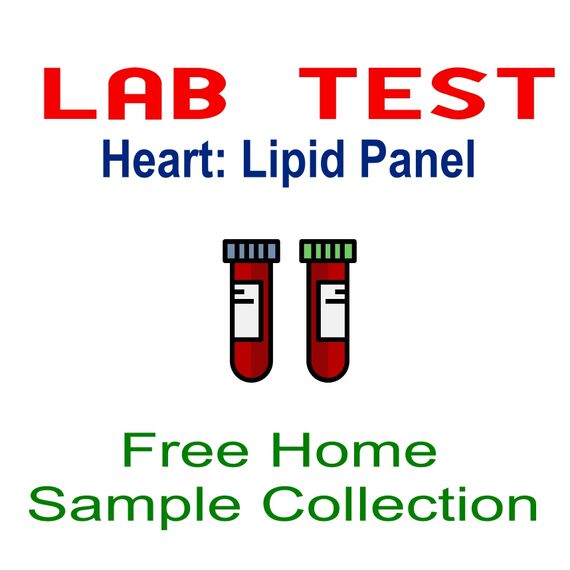This test is aslo known as Lipid Profile Test, Lipid Test, Cholesterol Profile Test, Cholesterol Panel Test, Cholesterol Test, Coronary Risk Panel Test, lipid blood test.
The lipid panel test is used in both children and adults to evaluate the risk of cardiovascular diseases like heart disease, heart attack, and stroke.
The lipid panel helps evaluate cardiovascular health by analyzing cholesterol in the blood. Too much cholesterol can build up in the blood vessels and arteries, damaging them and heightening the risk of problems like heart disease, stroke, and heart attack.
A Lipid Panel test may be ordered in several situations to evaluate a patient's lipid levels and assess cardiovascular risk factors:
- Routine Health Check-ups: Doctors often include a Lipid Panel test as part of routine check-ups, especially for individuals with risk factors such as a family history of heart disease, obesity, high blood pressure, or diabetes.
- Assessment of Cardiovascular Risk: The Lipid Panel test helps assess a patient's risk for cardiovascular diseases like heart attacks or strokes. It is particularly important for individuals with a history of cardiovascular disease or those with risk factors such as smoking, sedentary lifestyle, or poor diet.
- Monitoring Lipid-Lowering Treatments: For patients already diagnosed with high cholesterol or lipid disorders, regular Lipid Panel tests are ordered to monitor the effectiveness of lipid-lowering medications or lifestyle modifications.
- Evaluation of Overall Lipid Metabolism: The Lipid Panel test is used to evaluate lipid metabolism and provide insights into the balance of different lipids in the body, aiding in the detection of lipid disorders or imbalances.
Lipids are types of fat molecules in the blood. Cholesterol and triglycerides are two important types of lipids that are carried inside particles called lipoproteins.
The lipid panel analyzes your blood to measure different types of lipids:
- Total cholesterol: This measures your overall cholesterol level.
- Low-density lipoprotein (LDL) cholesterol: This type of cholesterol, known as “bad cholesterol,” can collect in blood vessels and increase your risk of cardiovascular disease.
- High-density lipoprotein (HDL) cholesterol: This type of “good cholesterol” helps reduce the buildup of cholesterol.
- Triglycerides: Excess amounts of this type of fat are associated with cardiovascular disease and pancreatic inflammation.
While these are the principal measurements in the standard lipid panel, some versions of the test may report additional measurements.
A Lipid Panel test is commonly ordered for:
Hyperlipidemia: Lipid Panel tests are used to diagnose and monitor conditions like high cholesterol (hypercholesterolemia) or high triglycerides (hypertriglyceridemia).
Cardiovascular Disease: Individuals with a history of cardiovascular diseases, heart attacks, or strokes require Lipid Panel tests to assess their lipid levels and monitor their cardiovascular risk.
Metabolic Syndrome: Lipid Panel tests help evaluate lipid abnormalities associated with metabolic syndrome, a cluster of conditions including high blood pressure, high blood sugar, excess body fat around the waist, and abnormal lipid levels.

Patient should be fasting 9-12 hours prior to collection.
None
One or two days from the date of sample receipt.
Type the specimeny type like blood, urine or any other specimen required.
Sample report in a format
No reviews found


